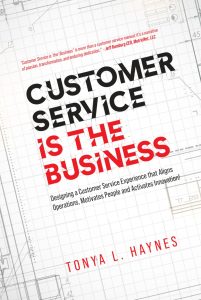Creating A Culture Of Excellence: How Employee Engagement Drives Organizational Success
In the competitive landscape of customer service, creating a culture of excellence is not just an option; it’s a necessity. Read More
The Foundation of a Customer-Centric Culture
A culture of excellence begins with a customer-centric mindset. Employees should view customer service as more than a job—it’s an opportunity to make a meaningful impact. This mindset is fostered through clear communication, shared values, and a focus on delivering exceptional service. To build this culture, consider the following steps:
- Define Core Values: Establish core values that emphasize customer satisfaction, respect, and integrity. These values should be embedded in every aspect of the organization and reflected in interactions with customers.
- Lead by Example: Leadership plays a crucial role in setting the tone for customer service excellence. Demonstrate the desired behaviors and attitudes to inspire and guide your team.
Training for Trust: Equipping Employees with the Right Skills
Training is pivotal in ensuring employees have the skills and knowledge necessary to deliver outstanding customer service. Focus on the following areas to build trust and foster strong relationships:
- Communication Skills: Effective communication is key to understanding and addressing customer needs. Train employees in active listening, clear and concise communication, and empathy. Role-playing scenarios can help employees practice these skills in a safe environment.
- Problem-Solving Abilities: Equip employees with problem-solving techniques to handle various customer situations confidently. Encourage creative thinking and provide guidelines for resolving common issues efficiently.
- Product Knowledge: Ensure employees are well-versed in the products or services offered. Comprehensive knowledge allows them to provide accurate information and recommendations, enhancing credibility and trust.
Building Rapport: Creating Genuine Connections
Building rapport with customers is essential for fostering trust and long-lasting relationships. Training should focus on:
- Personalization: Encourage employees to personalize interactions by addressing customers by name, remembering previous interactions, and tailoring solutions to individual needs.
- Empathy: Teach employees to show genuine concern for customers’ feelings and perspectives. Empathetic interactions build trust and make customers feel valued.
- Consistency: Consistency in service quality and behavior helps establish reliability. Train employees to deliver a consistent experience across all touchpoints.
Empowering Employees: Autonomy and Decision-Making
Empower employees by giving them the autonomy to make decisions that benefit the customer. This approach helps in:
- Fostering Ownership: When employees feel they have a stake in customer satisfaction, they are more motivated to go above and beyond.
- Speeding Up Resolution: Empowered employees can resolve issues more quickly without needing constant managerial approval, improving the overall customer experience.
Feedback and Recognition: Motivating and Improving
Regular feedback and recognition are crucial in maintaining high levels of employee engagement and performance:
- Constructive Feedback: Provide regular, constructive feedback to help employees improve their skills and performance. Focus on specific examples and offer actionable suggestions.
- Recognition Programs: Implement recognition programs to celebrate employees’ successes and exceptional customer service. Recognize both individual and team achievements to motivate and inspire.
- Surveys and Input: Use surveys and feedback mechanisms to gauge employee satisfaction and gather suggestions for improving training and processes.
Creating a Supportive Environment: Fostering Teamwork and Collaboration
A supportive work environment enhances employee engagement and collaboration:
- Team Building: Organize team-building activities to strengthen relationships among employees and foster a collaborative spirit.
- Open Communication: Encourage open communication and feedback among team members. Create channels for employees to share their ideas and concerns.
- Support Systems: Provide access to resources and support systems to help employees manage stress and maintain a healthy work-life balance.
Continuous Improvement: Evolving with Customer Needs
A culture of excellence is not static; it evolves with customer needs and industry trends. To stay ahead:
- Ongoing Training: Offer continuous training opportunities to keep employees updated on the latest tools, techniques, and industry developments.
- Adapt to Feedback: Regularly review customer feedback and adapt training programs and service protocols accordingly.
- Embrace Innovation: Encourage employees to embrace new technologies and methodologies that enhance customer service and streamline processes.
Conclusion
Creating a culture of excellence in customer service requires a commitment to employee engagement and development. By defining core values, providing comprehensive training, building rapport, empowering employees, recognizing achievements, fostering teamwork, and embracing continuous improvement, organizations can drive exceptional customer service and build lasting bonds with customers. A dedicated focus on these elements not only enhances customer satisfaction but also contributes to overall organizational success. Invest in your employees, and they will, in turn, invest in your customers, creating a cycle of excellence that propels your business forward.




